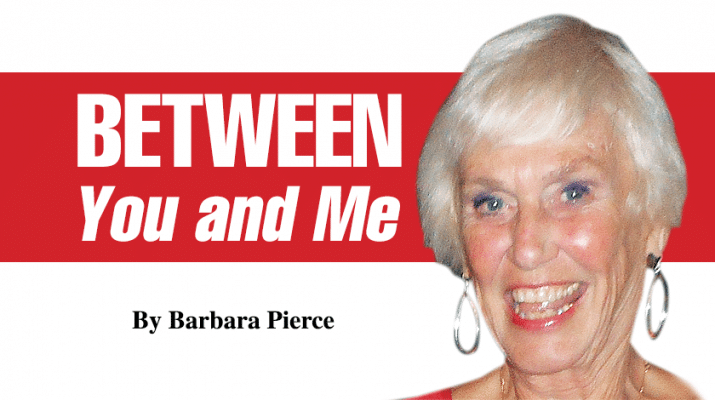By Barbara Pierce
Running late to meet my friend MaryLou, I text “Sorry, running late, be there soon.” After an argument with my daughter, I text my apologizes and try to make things right in a few sentences. My friend Sheila is going through significant health challenges, so I text her a quick “How are things going?”
No matter the undertaking, I’d always rather text rather than phone. If all else fails, I’d simply prefer not to get what I wanted rather than talk to a live human. Phone calls force me to contend with the messy reality of other people and myself.
Most people agree with me: The majority of us would rather text than talk.
Texting is by far our preferred method of communication these days.
We want our conversations to occur quietly, privately, at our own convenience. Texting is a less obtrusive, more discrete, instant way to communicate.
It gives us a kind of freedom that calling doesn’t. We can answer when it’s convenient for us and we have time to think about how to answer.
Texting encourages a shorter and more efficient exchange of information. Texting requires just part of our attention; it’s doable along with anything else we’re doing.
Text messages are, naturally, indispensable. It could be argued that the ability to exchange text messages is a major marker of our development as human beings.
Instant communication has transformed the way we interact in our personal and professional lives.
But a new study suggests that we’d be better off picking up the phone or setting up a video call—doing something where we can actually hear another person’s voice.
These experiments, published in the Journal of Experimental Psychology, suggest there’s something about the hearing the voice of the other person, in particular, that increases intimacy. It creates stronger social bonds than communicating through texting or email.
Subjects in the study were randomly assigned to reconnect with an old friend. Calling gave them a stronger feeling of being bonded without additional awkwardness they had expected. People form significantly stronger bonds when they’re talking on the phone rather than texting or emailing.
The sound of a person’s voice tells us so much about their thoughts and feelings. After a few moments, you can tell if someone is distracted or a bit below par or full of energy.
You can sense the hesitation which means that your friend needs to think about a suggestion, say, even if their words indicate agreement. You can hear that your mother isn’t well, even when she claims to be in robust health. A text message wouldn’t reveal these things.
And it even makes people feel more connected to strangers. In another experiment, the researchers had strangers connect by either texting, talking over video chat or talking using only audio. They found that both forms of voice communication—whether video or audio only—made the strangers feel significantly more connected than when they communicated via text.
Turns out that phone calls are good, actually. Very good. Text messages, the one-sided sharing of information that’s supposed to pass as conversation, often leave the receiver feeling short-changed, confused or devalued.
Texting can be useful if you need to just pass on a quick message or set up a time to get together with someone. But if you want stronger social connections—and the happiness and well-being that come with those—calling is the better way to reach out.
At root, texting is lazy and our relationships suffer when we don’t invest in them. A “Happy Birthday!” text — even with cake and champagne emojis — will never bring the same smile as a card in the mail or a phone call. A text to offer condolences after the death of a loved one — no way. No matter how many crying emojis are used, this is just wrong. A card and a stamp take effort that demonstrates the sender understands the importance of the event in the other person’s life. A conversation allows deep emotions to be shared, and the risk involved in opening up this way is not only worth it but necessary for real connection.
When it comes to maintaining and building the social relationships that are so integral to our well-being, we would be wise to connect with others using our voices—by talking rather than typing.
Text messages which hit the right note tend to be those which exchange clear-cut information. Practical arrangements, instructions, short observations are likely to be fine. Other types of communication are more likely to miss the mark and prompt misunderstanding and negative reactions.
Feeling connected to others is essential to our health and well-being. So when it comes to relationships, I’ll choose phone calls more often.
Barbara Pierce is a retired licensed clinical social worker with many years of experience helping people. If you would like to purchase a copy of her book, “When You Come to the Edge: Aging” or if you have questions for her, contact her at barbarapierce06@yahoo.com.


